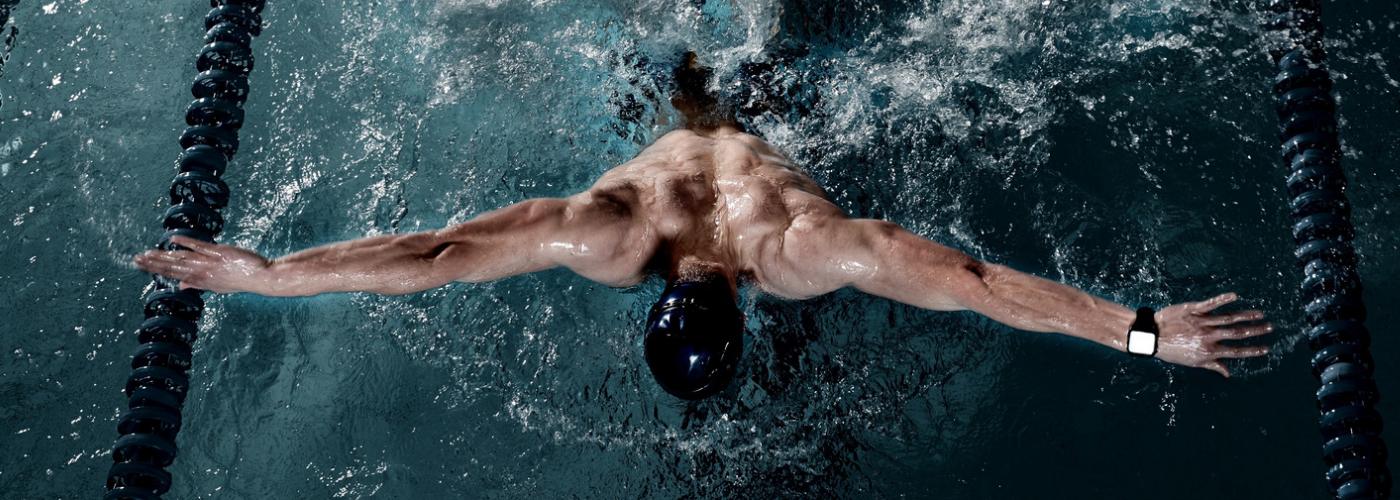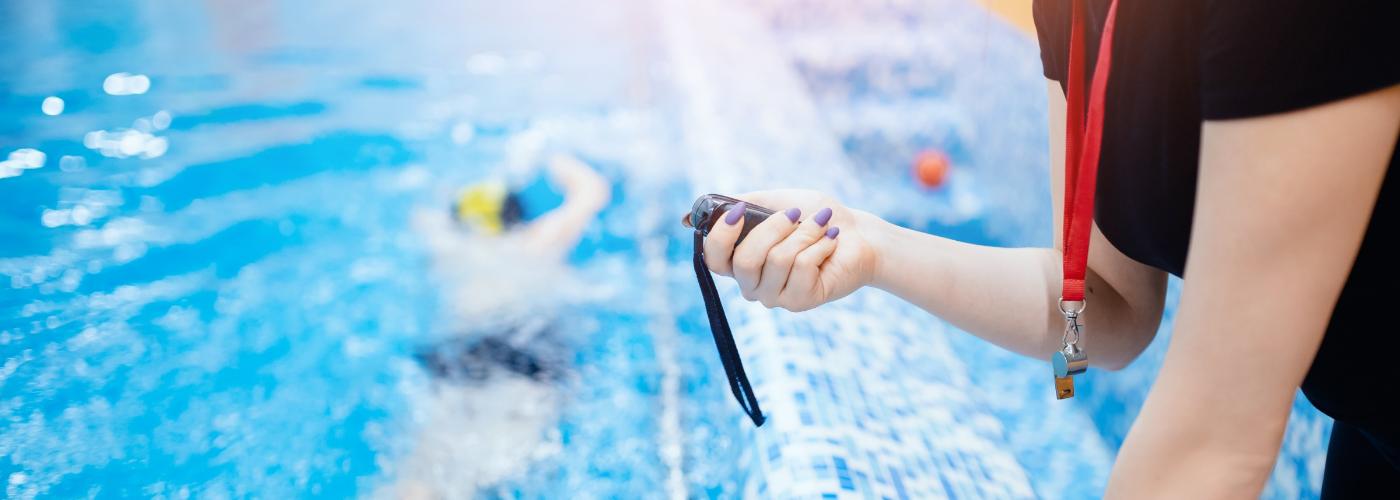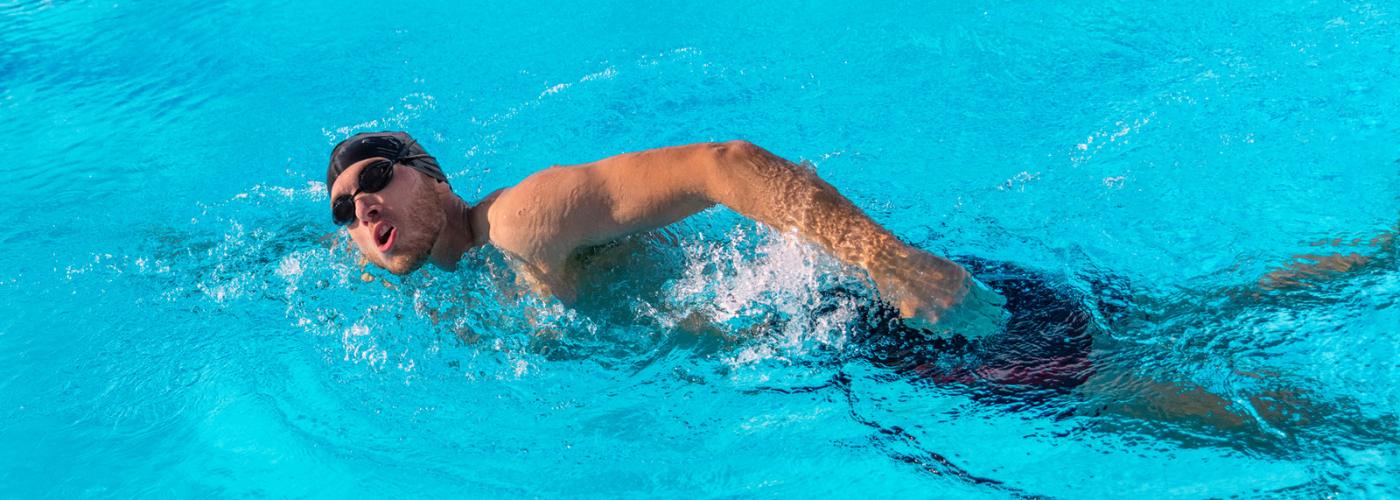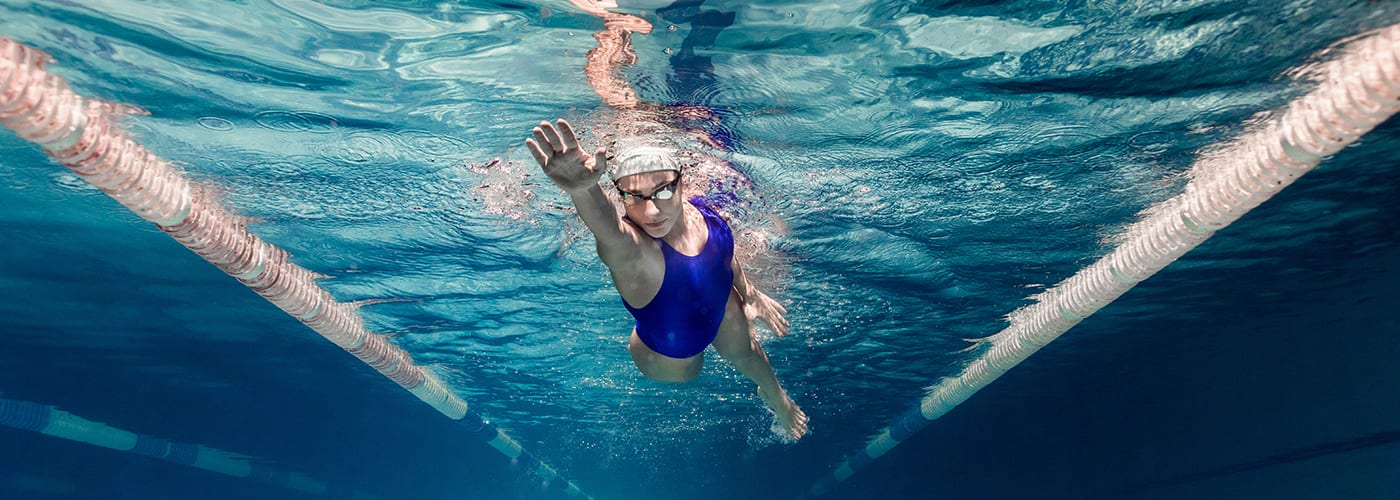Nothing like waking up and going for a nice swim! Even if you can’t swim in the morning, anytime you can hop in the pool and swim is excellent. Swimming is a low-impact workout that has minimal pressure on the joints. For people who suffer from chronic pain (especially in their joints), swimming can be an excellent workout. This blog goes over the benefits of a swimming workout.
Swimming Health Benefits

Swimming is one of the most effective and enjoyable forms of exercise. Not only is it a great way to cool off during those hot summer months, but it can also provide some serious health benefits.
One key benefit of swimming is that it’s a low-impact activity, meaning that it doesn’t put as much stress on your joints as other forms of exercise might. This makes it a great option for people with conditions like arthritis or injuries that limit their ability to participate in higher-impact activities. Swimming can also be a great treatment for joint pain.
Additionally, swimming provides an excellent cardiovascular workout that can improve heart health and reduce the risk of certain chronic diseases like diabetes and high blood pressure.
Blasting Away Calories
Most people think of running as being the ultimate cardio workout to burn away extra calories. We all know that running is a great workout, and swimming has been found to burn almost as many calories as running. It does that without the constant impact on your joints.
During an hour of swimming, a person who weighs around 150-200 pounds can burn around 500-800 calories. The more a person weighs, the increased number of calories they can burn while swimming. Fat tends to melt away from all the high amount of calorie-burning that occurs while swimming.
Reduce Your Stress
People experience stress daily from their jobs, family, and everything else that comes up. One of the healthiest ways to help you reduce stress is by jumping in the pool and swimming for some laps. Swimming increases your physical activity, which has been shown to help people who are stressed or suffering from depression.
When swimming, your body tells the brain to release neurochemicals that help elevate your mood and provide you with energy. When the neurochemicals are released, they can place you in a better, more relaxed state. Being in a more relaxed state can positively have an effect on getting a good night’s sleep.
Help Your Asthma
Swimming has proven to be a great way to improve your health and wellness. Swimming is an anaerobic exercise (limited use of oxygen) which causes you to monitor your breathing during swimming. Anaerobic exercise can help expand your lungs and make it easier for those with asthma to breathe.
Alleviate Chronic Pain
When you suffer from chronic pain, workouts can be quite challenging. Many workout routines can be high-impact. Swimming, however, is a low-impact exercise and has very little pressure on your joints.
Cool water can help reduce inflammation, which reduces the amount of pain you are experiencing. While in the water, you are free from gravity, pushing you down and hurting your joints. Swimming gives you a chance to float and not have any added pressure on your joints.
What Muscles Does Swimming Workout?

Swimming is a great exercise that doesn’t put too much pressure on your joints. It’s an excellent way to stay in shape, build strength and endurance. But what muscles do swimming workout? The answer is simple – almost every muscle in your body.
Firstly, swimming is a full-body workout that engages multiple muscle groups simultaneously. Your arms, shoulders, back, core, glutes, and legs are all working hard while you swim. This makes it an ideal exercise for developing overall muscular endurance and tone. Swimming can also be steady or high intensity cardio depending on your workout!
Secondly, the specific strokes used in swimming target different muscle groups. Freestyle or front crawl works your upper body primarily as you pull yourself through the water with each stroke.
Breaststroke involves more leg work as you kick through the water while using your arms to pull yourself along.
How Long Is A Good Swim Workout?

Swimming is a great way to stay fit and healthy, but how long should you swim to get the most out of your workout? The answer to this question depends on several factors, including your fitness level, goals, and personal preferences. However, some general guidelines can help you determine how long a good swim workout should be.
For beginners or those who are new to swimming, it’s generally recommended to start with shorter workouts of around 15-20 minutes.
This will allow your body time to adjust to the exercise and build up endurance gradually over time. As you become more comfortable in the water and improve your technique, you can gradually increase the length of your workouts.
For more experienced swimmers or those looking for a more challenging workout, sessions lasting between 45 minutes to an hour are typically recommended.
Is Swimming A Good Workout For Weight Loss

Swimming is also great for building muscle and toning your body. Unlike some other forms of cardio exercise, swimming engages all major muscle groups simultaneously.
This means that not only will you be burning calories, but you’ll also be strengthening and toning your muscles simultaneously. Swimming can help sculpt leaner arms, legs and abs while improving overall fitness. Since swimming doesn’t stress the body, it also helps the body to prevent workout injuries.
In addition to its physical benefits, swimming is also great for mental health!

Related Stories
When Courage Takes Flight: Lessons From a Women’s Skydiving Record Attempt
Photo by Taylor Buffington (T-Buff) We went to Eloy, Arizona on a mission — to...
Nov
Sciatica: 1, LeBron: 0 (For Now)
File photo: LeBron James #6 of the Los Angeles Lakers. (Photo: Thearon W. Henderson /...
Oct
Pickleball vs. Tennis: The Science of Recovery
For years, tennis was the stand-in for movement: endurance, coordination, and power all at once....
Oct
5 Ways to Support Bone Strength with HiDow
World Osteoporosis Day (October 20) October 20 is World Osteoporosis Day, and chances are, you’ve...
Oct
FDA-Cleared Is a Flex. Here’s Why.
Pulling Back the Curtain You’ve seen it on boxes, on websites, in ads: FDA-cleared. It...
Sep
This Is Fibro. This Is Larry.
September is Pain Awareness Month. And we’re not here to give you medical definitions or...
Sep